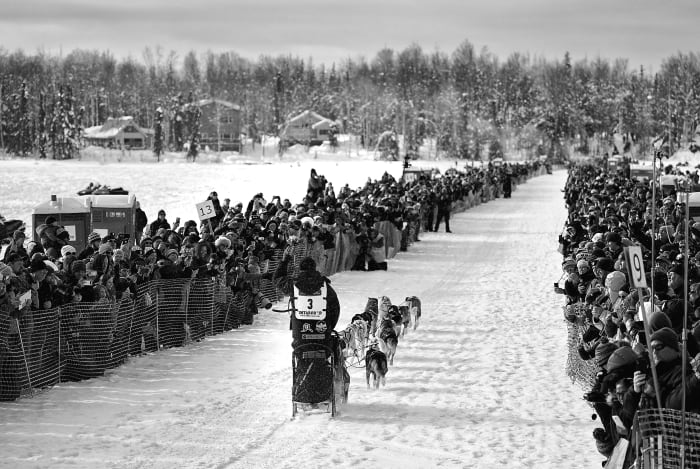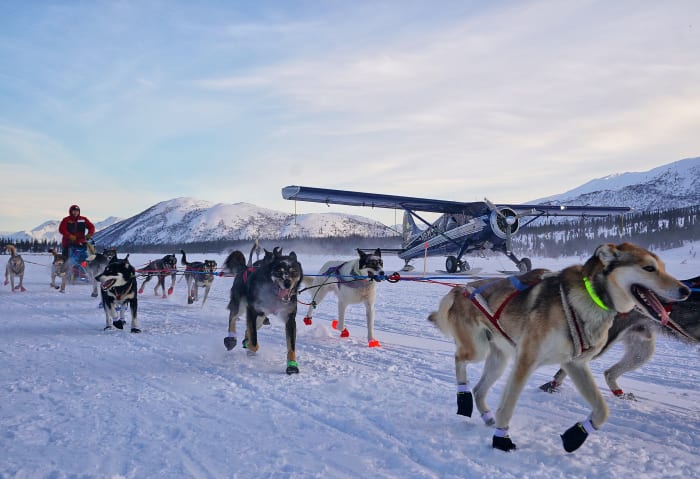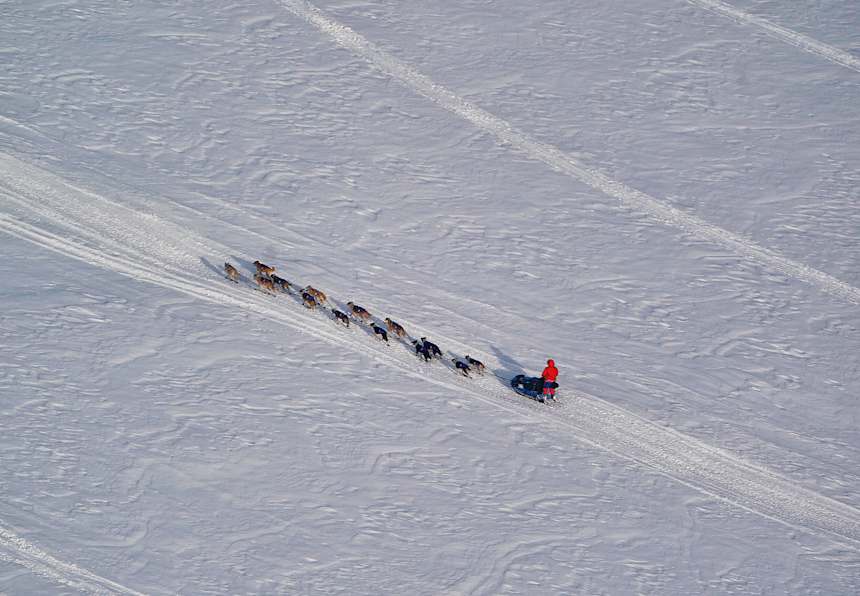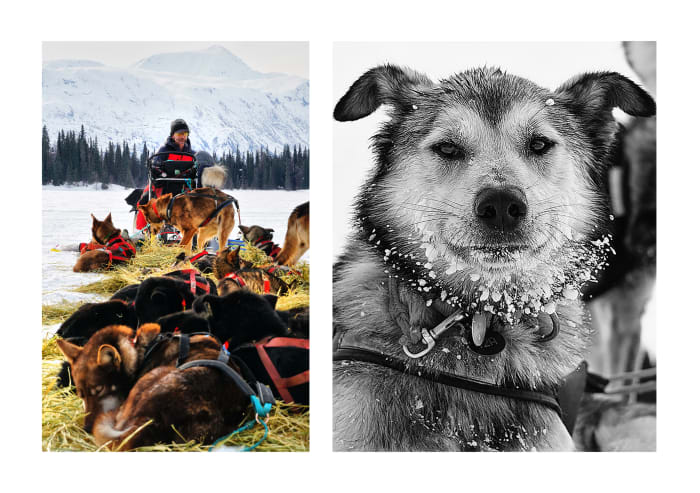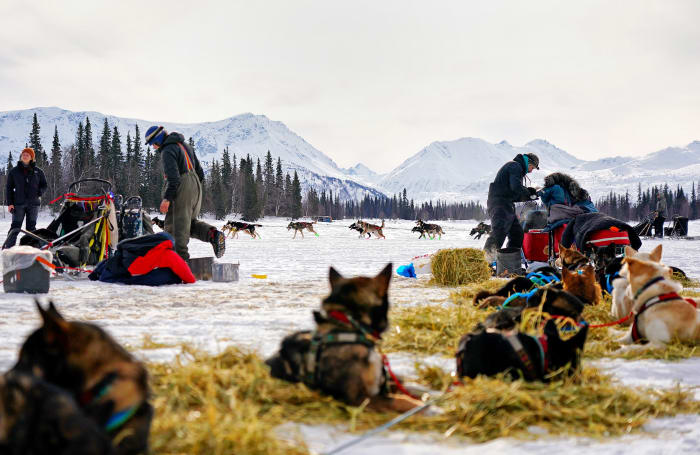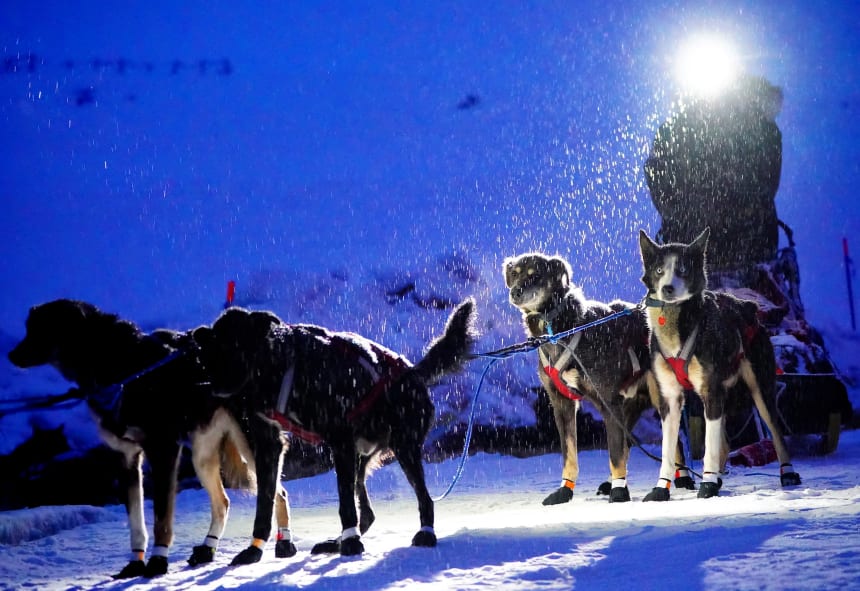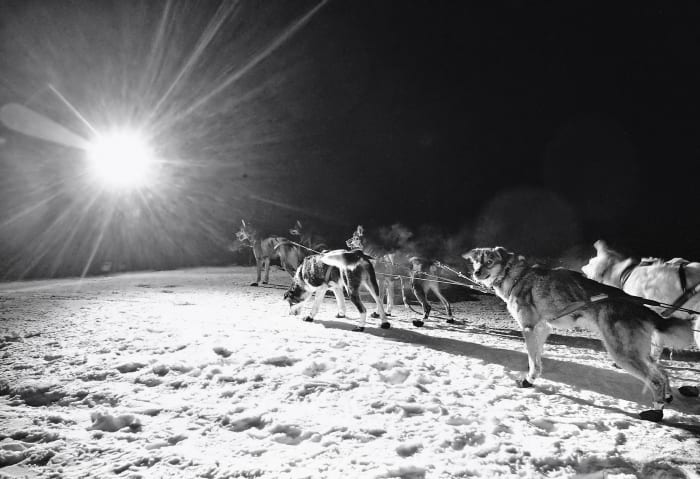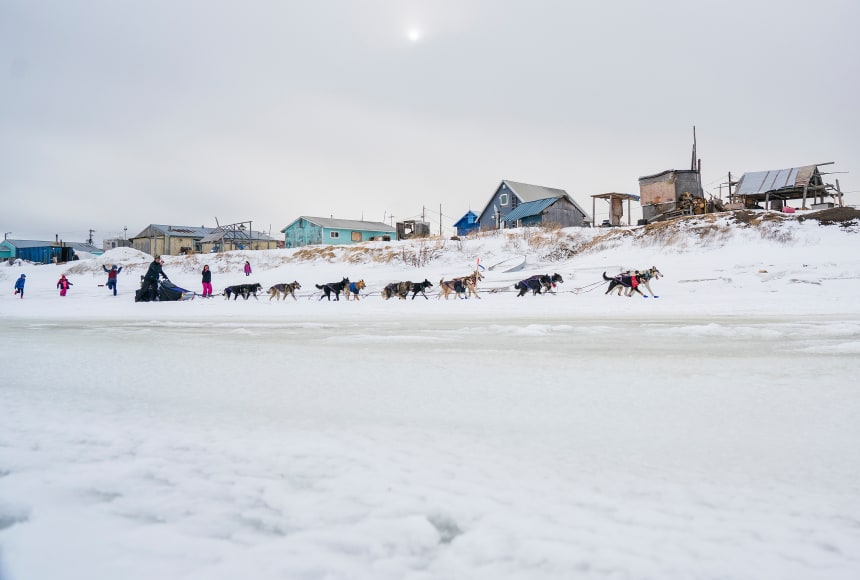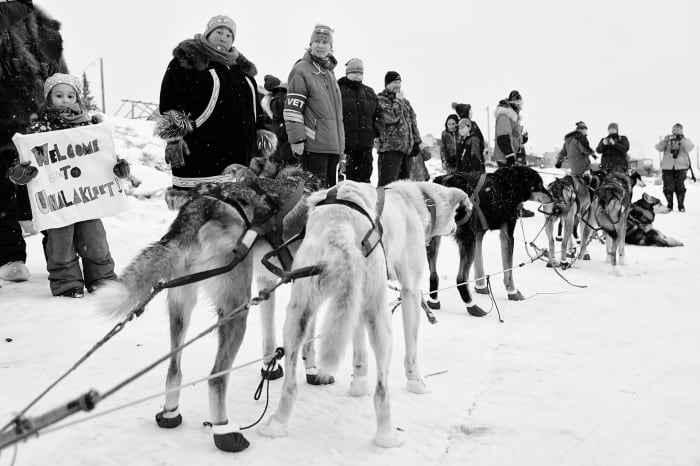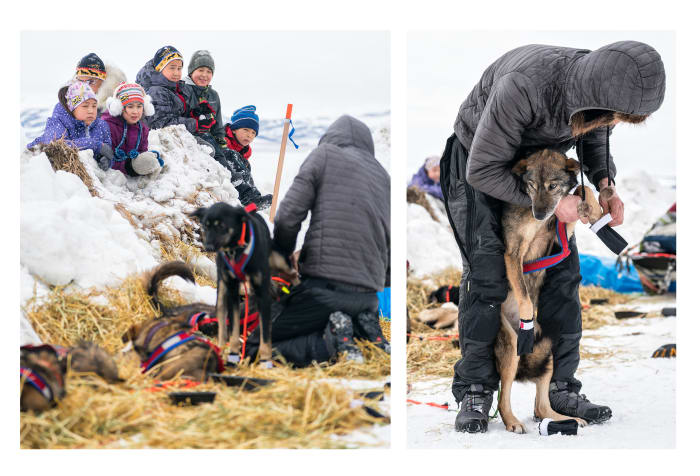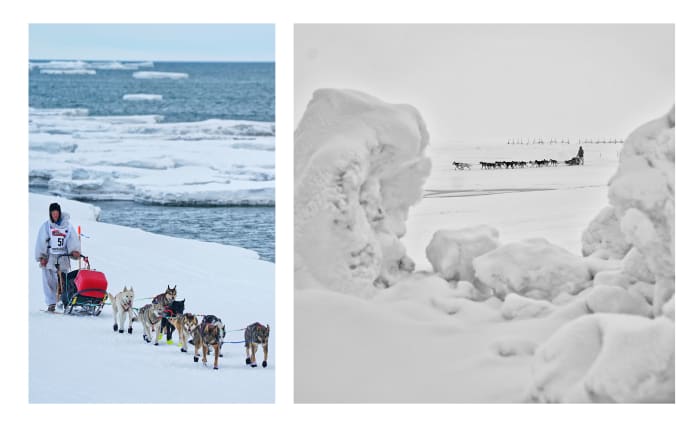Taking on the 2019 Iditarod
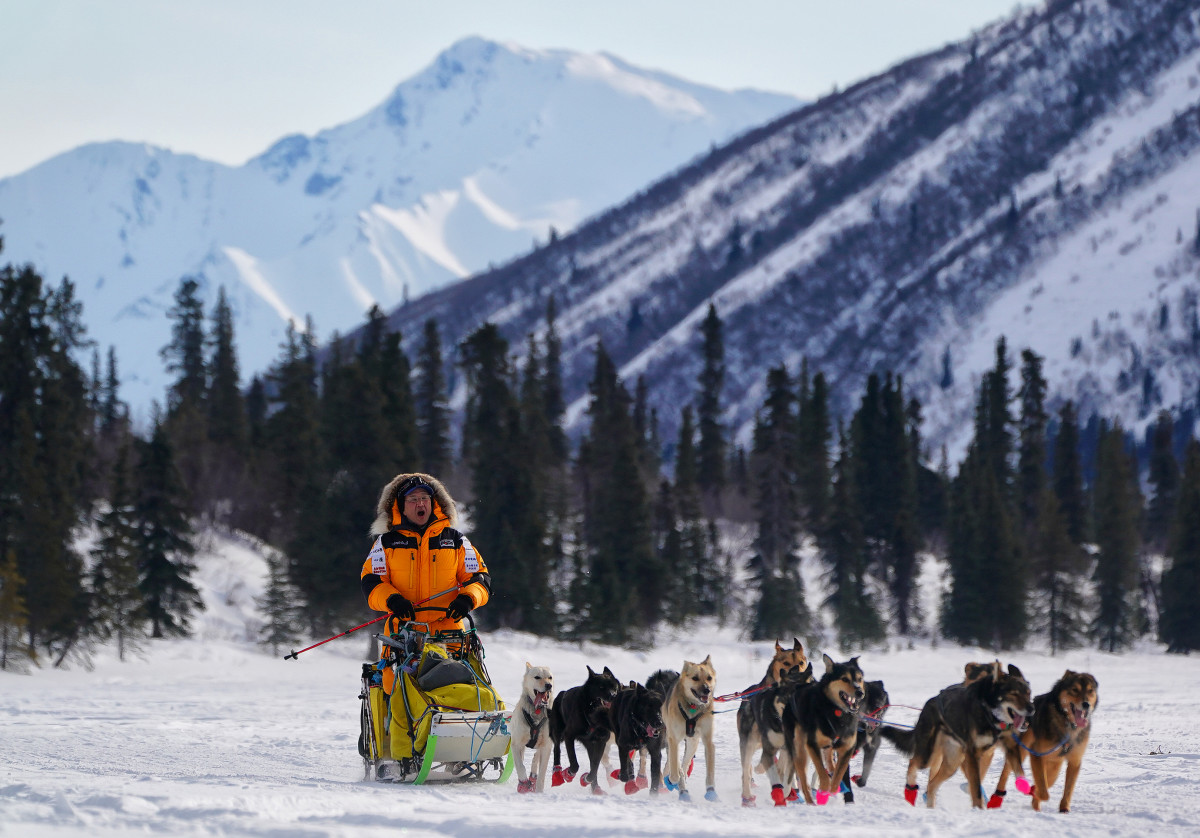
The 47th Iditarod sled dog race was decided on March 13 with 39 of the initial 53 mushers still competing. The winner—in nine days, 12 hours, 39 minutes and six seconds—was Peter Kaiser, 31, of Bethel, Alaska, who became the first musher of Yup’ik descent to earn the championship. He edged the 2018 winner, Leifseth Ulsom, by 12 minutes in a race marked by unusually warm temperatures and slushy conditions. Sports Illustrated’s Erick Rasco, cameras in hand, went along for the journey.
Photos by Erick W. Rasco. Captions by Tristan Jung.
The race began in Anchorage at 2 p.m. on Saturday, March 2. Spectators lined the course to cheer on the competitors as 52 mushers left Anchorage to embark on their journey of 1,000 miles from Anchorage to Nome.
After leaving the starting point and traveling around Alaska on a charter aircraft similar to the one in the photos below, Rasco caught up to the race at Rainy Pass, the highest point in the Iditarod located about 153 miles from Anchorage.
The Iditarod is a grueling expedition for the every creature involved. The dogs are stretched to the limit and receive veterinary and medical attention at every checkpoint. This year, French-born musher Nicolas Petit was leading the race, but lost the lead once his dogs had a fight and refused to keep going.
When mushers are at a checkpoint, they are constantly feeding, massaging and providing hay for the dogs. It's a stressful task to do for 1,000 miles over the course of the two-weeks race.
At the village of Unalakleet, located 737 miles from Anchorage, a crowd of local children on spring break came out to watch the race and provided hay and comfort for the dogs upon arrival.
The effects of climate change on the race displayed themselves throughout the competition. Due to early melting of pack ice and unusually warm temperatures, the dogs were often left running through water instead of snow. If you look closely, you can see signs of the early March thaw that slowed dogs during the race.
At the finish in Nome, 31-year-old Peter Kaiser crossed the line at 3:39 a.m. on March 13th, just 12 minutes ahead of defending champion Joar Leifseth Ulsom. Kaiser became the first musher of Yu'pik descent to win the race.

